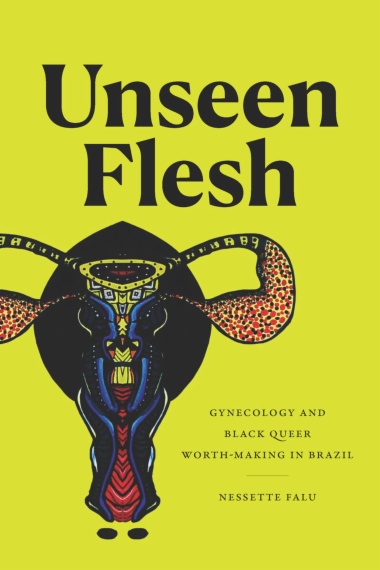In Unseen Flesh Nessette Falu explores how Black lesbians in Brazil define and sustain their well-being and self-worth against persistent racial, sexual, class, and gender-based prejudice. Focusing on the trauma caused by interactions with gynecologists, Falu draws on in-depth ethnographic work among the Black lesbian community to reveal their profoundly negative affective experiences within Brazil’s deeply biased medical system. In the face of such entrenched, intersectional intimate violence, Falu’s informants actively pursue well-being in ways that channel their struggle for self-worth toward broader goals of social change, self care, and communal action. Demonstrating how the racist and heteronormative underpinnings of gynecology erase Black lesbian subjecthood through mental, emotional, and physical traumas, Falu explores the daily resistance and abolitionist practices of worth-making that claim and sustain Black queer identity and living. Falu rethinks the medicalization of race, sex, and gender in Brazil and elsewhere while offering a new perspective on Black queer life through well-being grounded in relationships, socioeconomic struggles, the erotic, and freedom strivings.
- Cover
- Contents
- Acknowledgments
- Introduction. Bearing Witness to Unseen Flesh
- One. The Virgin Who Lives within Her Erotic Worth
- Two. Unseen Flesh:Gynecological Trauma, Emotional Power, and Intimate Sociomedical Violence
- Interlude One. Angela
- Three. The Social Clinic: Mapping the Social and Colonial World of Gynecology
- Interlude Two. It Doesn’t Matter
- Four. Are We Ethical Subjects? Seeing Ourselves in Shapeshifting Ethics
- Five. Bem-Estar Negra: Lésbicas Negras’ Beautiful Experiments of Worth
- Notes
- References
- Index
- A
- B
- C
- D
- E
- F
- G
- H
- I
- J
- K
- L
- M
- N
- O
- P
- R
- S
- T
- U
- V
- W
- X
- Y
- Z

